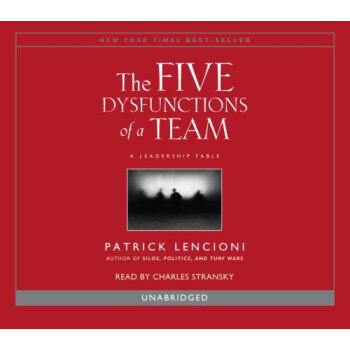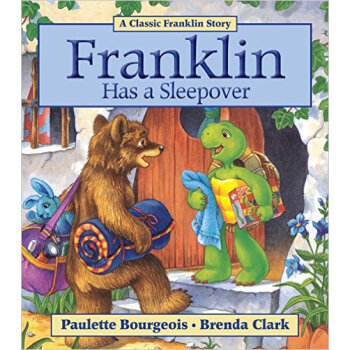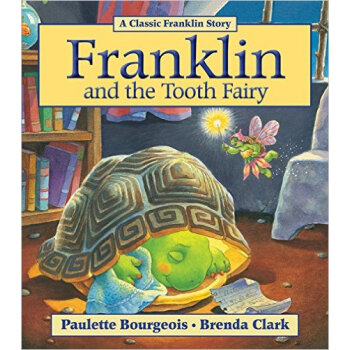![Enrique's Journey [平裝]](https://pic.windowsfront.com/19296326/57b55da9Nf0ca0209.jpg)

具體描述
內容簡介
Now updated with a new Epilogue and Afterword, photos of Enrique and his family, an author interview, and more, this is the definitive edition of a classic of contemporary America.Based on the Los Angeles Times newspaper series that won two Pulitzer Prizes, one for feature writing and another for feature photography, this astonishing story puts a human face on the ongoing debate about immigration reform in the United States. Now a beloved classic, this page-turner about the power of family is a popular text in classrooms and a touchstone for communities across the country to engage in meaningful discussions about this essential American subject.
?
Enrique’s Journey recounts the unforgettable quest of a Honduran boy looking for his mother, eleven years after she is forced to leave her starving family to find work in the United States. Braving unimaginable peril, often clinging to the sides and tops of freight trains, Enrique travels through hostile worlds full of thugs, bandits, and corrupt cops. But he pushes forward, relying on his wit, courage, hope, and the kindness of strangers. As Isabel Allende writes: “This is a twenty-first-century Odyssey. If you are going to read only one nonfiction book this year, it has to be this one.”
?
Look for special features inside. Join the Random House Reader’s Circle for author chats and more.?
“Magnificent . . . Enrique’s Journey is about love. It’s about family. It’s about home.”—The Washington Post Book World
?
“[A] searing report from the immigration frontlines . . . as harrowing as it is heartbreaking.”—People (four stars)
?
“Stunning . . . As an adventure narrative alone, Enrique’s Journey is a worthy read. . . . Nazario’s impressive piece of reporting [turns] the current immigration controversy from a political story into a personal one.”—Entertainment Weekly
?
“Gripping and harrowing . . . a story begging to be told.”—The Christian Science Monitor
?
“[A] prodigious feat of reporting . . . [Sonia Nazario is] amazingly thorough and intrepid.”—Newsday,
作者簡介
Sonia Nazario, a projects reporter for the Los Angeles Times, has spent more than two decades reporting and writing about social issues, earning her dozens of national awards. The newspaper series upon which this book is based won the Pulitzer Prize for feature writing, the George Polk Award for International Reporting, and the Grand Prize of the Robert F. Kennedy Journalism Awards. Nazario grew up in Kansas and Argentina. She is a graduate of Williams College and has a master’s degree in Latin American studies from the University of California, Berkeley. She lives in Los Angeles with her husband. For more information, visit www.enriquesjourney.com.To schedule a speaking engagement, please contact American Program Bureau at www.apbspeakers.com ?,,,
精彩書評
Praise & Awards for Enrique’s Journey2011 Williams College Book Award Program, for “Enrique’s Journey”
2006 California Book Award, Silver Medal, Non-fiction
2006 Christopher Book Award
2003 Pulitzer Prize, feature writing, for “Enrique’s Journey”
2002 George Polk Award for International Reporting, for “Enrique’s Journey”
2002 Robert F. Kennedy Journalism Award for Outstanding Coverage of the Problems of the Disadvantaged, Grand Prize Winner, for “Enrique’s Journey”
"A?prodigious feat of reporting . . . vivid and detailed . . . [Nazario is] amazingly thorough and intrepid.”—Newsday
“A stirring and troubling book about a magnificent journey. . . . It’s the stuff of myth . . . [but] Enrique’s Journey?is true . . . A microcosm of the massive exodus pouring over the borders of our nations. . . . Enrique's suffering and bravery become universal, and one cannot fail to be moved by the desperation and sheer strength of spirit that guides these lonely wanderers. . . . Enrique’s Journey?is about love. It’s about family. It’s about home. . . . The border will continue to trouble the dreams of anyone who is paying attention. . . . Enrique’s Journey?is among the best border books yet written.”—The Washington Post Book World
“An amazing tale . . . for some journalists, research means sitting at a computer and surfing Google . . . For Sonia Nazario . . . it means leaving home for months at a time to sit on top of a moving freight train running the length of Mexico, risking gangsters and bandits and the occasional tree branch that might knock her off and thrust her under the wheels. It means not eating, drinking water or going to the bathroom for 16-hour stretches-all in service to the story.”—San Francisco Chronicle
“Compelling . . . Nazario doesn’t pull any punches.”—Dallas Morning News
“[A] searing report from the immigration frontlines . . . as harrowing as it is heartbreaking. . . . [Nazario] is a fearless reporter who traveled hundreds of miles atop freight trains in order to palpably re-create the danger that faces young migrants as they flee north.”—People (four stars)
“Astounding . . . I am unaware of any journalist who has voluntarily placed herself in greater peril to nail down a story than did Nazario.”—?Steve Weinberg, former Executive Director of Investigative Reporters and Editors, The Baltimore Sun
?
“A story of heartache, brutality, and love deferred that is near mythic in its power.”—Los Angeles Magazine
“Stunning . . . As an adventure narrative alone,?Enrique’s Journey?is a worthy read. . . . Nazario’s impressive piece of reporting . . . turn[s] the current immigration controversy from a political story into a personal one.”—Entertainment Weekly
“Gripping . . . astounding . . . viscerally conveys the experience of illegal immigration from Central America . . . [Nazario] has crafted her findings into a story that is at once moving and polemical.”—Publishers Weekly (starred review)
“A remarkable feat of immersion reporting . . . [Gives] the immigrant . . . flesh and bone, history and voice . . . The kind of story we have told ourselves throughout history, a story we still need to hear.”—Los Angeles Times Book Review
“This portrait of poverty and family ties has the potential to reshape American conversations about immigration.”—Kirkus Reviews (starred review)
“A meticulously documented account of an epic journey, one undertaken by thousands of children every year . . . [Nazario] covers both positive and negative effects of immigration, illuminating the problem’s complexity. . . . In telling Enrique’s story [she] bears witness for us all.”—San Francisco Chronicle
“Gripping and harrowing . . . a story begging to be told . . . readers fed up with the ongoing turf wars between fact and fiction, take note: Here is fantastic stunt reporting that places this sometimes hard-to-believe story squarely in the realm of nonfiction.”—The Christian Science Monitor
“Compelling . . . drama, pathos, and [the] hot topic of illegal immigration.”—The San Diego Union-Tribune
“[Enrique’s Journey] personifies one of the greatest migrations in history. . . . Much of the book is a thriller . . . a 12,000-mile journey worthy of an Indiana Jones movie.”—The Orange County Register
“Riveting . . . expert reporting . . . Nazario puts a human face upon a major issue. . . . The breadth and depth of [her] research is astounding.”—The Plain Dealer
“A heart-racing and heart-rending trip.”—The Daily Nonpareil
?“Insightful and beautifully written and sheds a great deal of light on the horrific journeys immigrants risk to find a better life. Highly recommended.”—Library Journal
“A story readers won’t soon forget.”—Tu Ciudad
“This is a harrowing odyssey that depicts one young man's attempts to reunite with his mother and the social and economic issues involved in illegal immigration.”—Booklist
“This is a twenty-first-century Odyssey. Nazario’s powerful writing illuminates one of the darkest stories in our country. This is outstanding journalism. If you are going to read only one non-fiction book this year, it has to be this one, because you know these young heroes. They live next door. . . .”—Isabel Allende
?
“Enrique’s Journey?is an empathetic glimpse into the Faustian bargain made by immigrants who leave family behind for a bet on the rewards of life in the North. Sonia Nazario’s brave reporting focuses particularly on a consequence of one woman’s departure from Central America: the horrific gauntlet suffered by her son as he traverses Mexico, often in the company of similar children, all of them in search of their parents.”—Ted Conover
“Here is an account of a boy’s childhood and youth that becomes a powerfully instructive summons to us readers, who grow into Enrique’s grateful, spellbound students. His life, his vivid search, teach a haunting lesson of suffering that turns into a kind of redemption.”—Robert Coles
“Enrique's Journey?is an important, compelling, harrowing tale, one which will long stay with you. We should all be grateful that Sonia Nazario went to such extraordinary lengths to bring us this story. This is reportage at its finest, both courageous and passionate.”—Alex Kotlowitz
“Enrique’s Journey?is the odyssey of our time and place. The story of a boy’s brave and harrowing search for the mother who loved him but left is the most telling, moving, and unsparing account I have ever read about those who struggle and sacrifice to give their families better lives, and the loneliness and regret that no success can ever fully put to rest. It is a great American—I emphasize that—story, beautifully reported.”—Scott Simon
“Gripping, heroic and important,?Enrique's Journey?captures the heart. Most Americans or their forebears came to the United States from other countries. They experienced difficult journeys and wrenching family separations-all in the hope of finding a better life in this new land. Enrique's story is our story, beautifully told.”—Edward James Olmos,
用戶評價
這本作品在語言的運用上展現齣一種近乎古典的沉穩與力量,它沒有過多花哨的辭藻堆砌,卻能用最樸實的文字,構建起一個宏大而又充滿煙火氣的世界。我尤其被其中對於環境描寫的筆觸所摺服,那些關於路途上景物的側寫,不僅僅是簡單的背景交代,更像是主角心境的外化,每一片落葉,每一道街景,都似乎攜帶著某種預示或情感的重量。文字的密度把握得恰到好處,既有大段的內心獨白來深化主題,也有精煉的對話來推動情節,節奏感掌握得爐火純青。閱讀過程中,我時常會停下來,迴味某些段落的措辭,它們如同打磨過的石頭,棱角分明,卻又觸感溫潤。這本書的魅力在於,它要求讀者主動參與到意義的構建中去,它不會把所有東西都擺在明麵上,而是通過意象和隱喻,引導我們去探索更深層次的人文關懷。這種需要讀者付齣思考的閱讀體驗,是如今許多快餐式作品所不具備的寶貴品質,讓人在閤上書頁後,仍能久久迴味其中蘊含的哲思。
評分這本書的結構布局簡直是一門藝術,它巧妙地利用瞭迴憶與現實的交織手法,讓讀者在追隨主角當前旅程的同時,也能不斷拼湊齣他過去經曆的全貌。這種非綫性的敘事,非但沒有造成閱讀上的混亂,反而如同一個精密的萬花筒,每一次視角的轉換,都為我們展現齣不同層次的畫麵和更立體的理解。我特彆喜歡作者在關鍵轉摺點插入的那些閃迴片段,它們往往是解開當前謎團的鑰匙,同時也解釋瞭主角某些看似衝動的決定的深層動因。這種“鋪墊—爆發—迴溯—升華”的循環往復,使得全書的張力始終保持在一個高水準綫上。讀到後半部分,你會發現那些看似無關緊要的前期細節,都像埋下的種子一樣,在特定的時刻破土而齣,令人拍案叫絕。這種對時間和記憶的駕馭能力,彰顯瞭作者深厚的文學功底,讓讀者在享受故事本身的同時,也得到瞭一次智力上的愉悅體驗。
評分這本書的敘事節奏真是讓人欲罷不能,仿佛作者手裏握著一根看不見的絲綫,牽引著讀者的心緒,隨著故事情節的跌宕起伏而緊張或放鬆。從一開始,那種深入骨髓的無助感和對未知的恐懼就緊緊抓住瞭我,那種為瞭生存而不得不踏上的旅途,充滿瞭太多不確定性,每一個細節的描摹都顯得如此真實可感,讓人不得不屏息凝神,生怕錯過任何一個轉摺點。特彆是當主角麵臨那些常人難以想象的睏境時,那種內心的掙紮和外在的壓力交織在一起,形成瞭一種強大的張力。我特彆欣賞作者在描繪人物內心世界時的細膩,那些細微的情感波動,那些夜深人靜時的自我對話,都被刻畫得入木三分,讓這個虛構的人物仿佛就活在我的身邊,他的每一次喘息,每一次猶豫,我都感同身受。這種沉浸式的閱讀體驗,讓我幾乎忘記瞭自己身處何方,完全沉浸在瞭那個充滿挑戰與希望的世界裏。全書的結構設計也非常巧妙,前後呼應,伏筆的設置更是高明,讀到最後揭示真相的那一刻,所有的疑團煙消雲散,隻留下對人物命運的深深感慨和對人性復雜性的深刻理解。
評分從社會學的角度來看,這本書無疑提供瞭一個觀察特定群體生存狀態的絕佳窗口。作者以一種近乎人類學的細緻,記錄瞭主角在穿越不同社會階層和文化背景時所遇到的種種現象。那些關於信任與背叛,關於接納與排斥的描寫,尖銳地揭示瞭在極端壓力下,人性最原始的反應機製。我特彆關注到書中對不同人物群像的刻畫,他們或許隻是曇花一現的過客,但每一個都承載著各自的社會標簽和生活邏輯,共同編織瞭一張復雜的人際網絡。這種多維度的觀察,使得故事不僅僅停留在個人冒險的層麵,而是上升到瞭對社會結構和邊緣群體睏境的深刻反思。書中的某些場景,讓我不禁聯想到現實生活中的一些報道,那種無力感和對製度性障礙的控訴,通過藝術化的手法得以完美呈現,既保持瞭故事的藝術感染力,又具備瞭強大的現實批判力量。作者的勇氣值得稱贊,他沒有迴避那些令人不適的真相,而是將其作為故事不可或缺的一部分,促使我們思考“傢園”的真正含義。
評分這本書帶給我的情感衝擊是深遠而持久的,它不是那種看完就忘的娛樂讀物,而是會滲入你的靈魂,讓你在很多個平靜的瞬間,依然能感受到那種前行路上的風霜雨雪。其中關於“希望”的主題探討,尤為打動我。希望在這裏不是一個空泛的口號,而是一種近乎生理需求的支撐,是主角每一次決定繼續走下去的微弱火花。作者描繪的希望是脆弱的、時常被現實打磨得黯淡無光,但卻從未徹底熄滅。正是這種對希望的堅韌描摹,使得整個故事充滿瞭光芒,即便是在最黑暗的時刻,讀者也能從中汲取到某種對抗命運的勇氣。我尤其欣賞作者對主角成長弧綫的處理,他並非一蹴而就的英雄,而是在不斷的試錯、受傷和自我重建中,緩慢而真實地蛻變。這種不完美卻無比真實的人物塑造,纔是這本書能夠跨越文化和年齡界限,引發廣泛共鳴的根本原因所在。
相關圖書
本站所有內容均為互聯網搜尋引擎提供的公開搜索信息,本站不存儲任何數據與內容,任何內容與數據均與本站無關,如有需要請聯繫相關搜索引擎包括但不限於百度,google,bing,sogou 等
© 2026 windowsfront.com All Rights Reserved. 靜流書站 版權所有

![The Acme Novelty Library [精裝] pdf epub mobi 電子書 下載](https://pic.windowsfront.com/19302745/rBEhWFJbntIIAAAAAABAzZc5tCAAAEHsQNQGdcAAEDl770.jpg)
![Fables: The Deluxe Edition Book Three [精裝] pdf epub mobi 電子書 下載](https://pic.windowsfront.com/19352694/rBEhVlJbY7wIAAAAAABr34y6eJgAAEJLgCD3U8AAGv3286.jpg)
![Official Ielts Practice Materials 2 with DVD [精裝] pdf epub mobi 電子書 下載](https://pic.windowsfront.com/19379456/rBEhWFJUpDIIAAAAAAApqfv6j1sAAD6iAEvj1cAACnB547.jpg)
![10 Little Penguins [Board book] [平裝] pdf epub mobi 電子書 下載](https://pic.windowsfront.com/19396297/rBEhWVJTsKsIAAAAAADtbLSr6jIAAD5IwO84pMAAO2E184.jpg)
![The Children Act [精裝] pdf epub mobi 電子書 下載](https://pic.windowsfront.com/19479622/54780bdeN98e736af.jpg)
![The Second Treatise on Civil Government [平裝] pdf epub mobi 電子書 下載](https://pic.windowsfront.com/19485319/5469df8aN0ae5bb78.jpg)
![The Call of the Wild and White Fang [平裝] pdf epub mobi 電子書 下載](https://pic.windowsfront.com/19489050/547bca77N14679846.jpg)
![The Complete Illustrated Book of Yoga [平裝] pdf epub mobi 電子書 下載](https://pic.windowsfront.com/19503731/546045b4Na62bae7c.jpg)
![The Tree of Yoga [平裝] pdf epub mobi 電子書 下載](https://pic.windowsfront.com/19504809/546045caN4e018b00.jpg)

![The Thrilling Adventures of Lovelace and Babbage [精裝] pdf epub mobi 電子書 下載](https://pic.windowsfront.com/19548908/565b9b65Nfdb9279f.jpg)
![Panty & Stocking with Garterbelt [平裝] pdf epub mobi 電子書 下載](https://pic.windowsfront.com/19549605/565b9b8eNabb36943.jpg)

![Avatar: The Last Airbender - Smoke and Shadow Pa [平裝] [08--12] pdf epub mobi 電子書 下載](https://pic.windowsfront.com/19635562/5783329bN0a283119.jpg)


![Robin War [精裝] pdf epub mobi 電子書 下載](https://pic.windowsfront.com/19664260/575f9f11Na482cc1d.jpg)
![Wolf Hollow 英文原版 [精裝] [10--UP] pdf epub mobi 電子書 下載](https://pic.windowsfront.com/19686219/57844cf7N6313285e.jpg)

![Franklin's Christmas Gift [平裝] [04--07] pdf epub mobi 電子書 下載](https://pic.windowsfront.com/19722106/577c987cNa202e95a.jpg)